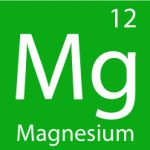You may have been advised by your doctor that you are magnesium deficient or in a high risk category. So you are here to find out just what is Magnesium Oxide, and if is it right for you.
 Maybe you are suffering from high blood pressure, stress, trouble sleeping, muscle cramps or another classic symptom of magnesium deficiency.
Maybe you are suffering from high blood pressure, stress, trouble sleeping, muscle cramps or another classic symptom of magnesium deficiency.
Read further:
So you have a look at the massive amount of options out there for magnesium supplements. They come in so many shapes, sizes, flavours and modes of delivery.
There are magnesium oils, magnesium flakes and magnesium bath salts for absorption directly into the skin.
The choices of oral liquids, tablets, capsules and powders are seemingly endless.
So Which Magnesium Supplement do you Choose?
The most common forms of magnesium widely available in supplements are:
- Magnesium Oxide
- Magnesium Chloride
- Magnesium Gluconate
- Magnesium Glycinate
- Magnesium Citrate
- Magnesium Sulphate
This is just to name a few!
Click on the links above to learn more about the different types of magnesium.
One of the most common ingredients in a lot of supplements that are readily available in your local supermarket or pharmacy is magnesium oxide.
But What is Magnesium Oxide?
Magnesium oxide is a mineral compound which occurs when magnesium molecules are bound with oxygen.
What is Magnesium Oxide Used For?
Medicinal
Magnesium oxide is found in supplements for magnesium deficiency. It is also used as an antacid and is an ingredient in these medications that are used to reduce stomach acids to improve symptoms of indigestion.
Other
- Magnesium oxide is an important ingredient in cement.
- Treatment of drinking water
- Fertilizer
- Animal feed
- Insulation of electrical cables
- Used in construction materials for its fire, termite, moisture and mold resistance
- Source: Wikipedia
Pros of Magnesium Oxide
The main thing about magnesium oxide when it is used as a supplement, is that is the preferred form of magnesium for many pharmaceutical companies. This is due to it being so cost effective.
It has a high magnesium content relative to a low mass. This means that you are getting a lot of bang for your buck – you only have to swallow 1 magnesium oxide tablet to consume the same magnesium as 4 magnesium citrate tablets for example.
That is where the good stuff about magnesium oxide stops.
Cons of Magnesium Oxide
When you are looking at the back of that magnesium supplement bottle and scratching your head wondering just what is magnesium oxide, consider this: magnesium oxide has the lowest bioavailability of all the magnesium supplements. This means if you are taking a tablet that contains 100mg of magnesium for example, your body only absorbs a staggering 4% of the magnesium. (source: The Magnesium Miracle by Dr Carolyn Dean) That’s only 4mg. That is a lot of tablets you need to take before you reach the recommended daily magnesium intake of 320mg – 420mg! (NIH)

A lot of magnesium oxide supplements also contain an additive called stearate which is usually considered unnecessary, and is actually harmful in large quantities.
Learn more about magnesium stearate here.
What is Magnesium Oxide Doing?
Not much actually.
96% of magnesium oxide is digested and excreted by the kidneys without going anywhere near the places it is needed most. What it is not doing is being absorbed and used by the body (source: The Magnesium Miracle By Dr Carolyn Dean)
If you are magnesium deficient like 75% of Americans today, then you need a better supplement to fulfil your needs.

Magnesium is required in over 300 enzyme functions. It keeps the electrolytes in balance, the skeleton strong and regulates your heartbeat. Magnesium produces energy and regulates the hormones needed for sleep. It digests and metabolises the food we eat, while reducing stress and facilitating smooth muscle and nerve actions.
Sufficient levels of magnesium is vital for everyone’s health and wellbeing.
Therefore, magnesium oxide is not an appropriate or recommended magnesium supplement.
Have a look at the most recommended magnesium supplements.
The magnesium supplements listed here are the top 3 for convenience.
Or you could try applying magnesium oil directly onto the skin if you don’t like to swallow tablets or capsules and want a more pure and organic form of magnesium chloride.
Click here for more information on magnesium chloride oils.
Now that your question of what is magnesium oxide has been answered, you should be able to tackle your choice of magnesium supplement with much more information at hand.
Please comment below with your magnesium deficiency experience.




Permalink //
I have had high blood pressure for a while, was scared by my doctor and researched a bit. I read that Magnesium would help along with garlic, beets and more greens. So I spent a month filling my body with all of the above. My blood pressure dropped to normal levels but I couldent say what as the cause. Might of been a combination of all I was eating or just the magnesium. I had no idea of the options with magnesium. I always got the generic brand at my pharmacy. Thank you for the post!
Permalink //
Hello Pierre,
The generic brand at your chemist would likely have been a supplement containing magnesium oxide. However, because you have combined it with some foods that are rich in magnesium as well, all of this combined seems to have done the job.
Magnesium maintains normal levels of blood pressure by facilitating vasodilation which is the relaxation of the blood vessels. I am glad your doctor had the foresight to try the magnesium first before putting you straight onto antihypertensive medication.
Thanks for sharing, Kristine
Permalink //
Thanks for putting such an informative article for us! Although you are not a doctor, I got a really good idea of what is magnezium oxide, what it ks used for and the better alternative tha yoi have us.I think this article will help a lot of people who are suffring from all kinds of diseases related to magnesium, and will highly benefit from the information presented here.
Thank you very much for sharing this, and I am looking forward for more awesome articles!
Permalink //
So glad I could help Alexey!
Are you getting enough?
Best of health,
Kristine
Permalink //
wow! This article is very important and make awareness on Magnesium deficiency. I was not aware of it until now. It is really important to know what this mineral does to keep up health.
In normal case, how a person would know that he/she is magnesium deficient?
What are symptoms of magnesium deficiency?
Permalink //
Hi there,
Thanks for taking the time to comment today.
Check out this article outlining the common symptoms of magnesium deficiency for details.
Regards, Kristine G
Permalink //
Very attractive website with cool image. you had explained a very clear image of what is magnesium deficiency. I wonder their are many variety of supplements for magnesium deficiency.
I need to know magnesium deficiency is also lead to high sugar?
which supplement is highly preferable? can all age group can take the supplement
Regards
manokaran
Permalink //
Mano,
People suffering from diabetes are at a high risk of magnesium deficiency as high blood sugars can lead to the depletion of magnesium via the urine.
Magnesium helps to regulate the blood sugars so yes, they are inextricably linked.
High blood sugar leads to low magnesium which leads to higher blood sugar!
Instead of Magnesium Oxide, I would recommend an alternative supplement containing magnesium chloride, magnesium gluconate or magnesium citrate depending on what mode of delivery you prefer. Have a look at those links for more details.
Or check out my 3 favourite supplements here.
If you are under 18, please consult your doctor before taking any supplements. As you increase in age, so too does your magnesium requirement so it becomes even more important to be supplementing your intake the older you get.
Thanks for stopping by,
Kristine G